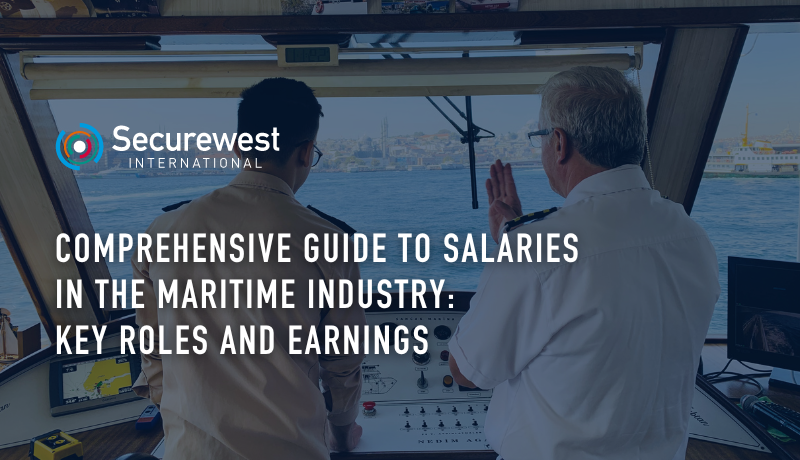The maritime industry, crucial for global trade, offers diverse career opportunities with varying salary ranges. This guide explores key roles, average earnings, and factors influencing pay scales in the maritime sector.
Overview of the Maritime Industry
The maritime industry encompasses all activities related to the sea and shipping, including transportation, logistics, and marine resource management. It is a crucial sector for international trade, with an estimated 90% of global trade being carried by sea (World Economic Forum). The industry is divided into several segments, including commercial shipping, offshore oil and gas, fishing, and marine tourism.
Key Roles and Average Salaries
Salaries in the maritime industry vary widely depending on the specific role, level of experience, and the type of vessel or operation. Here, we outline some of the key roles and their average salaries.
Deck Officers and Captains
- Cadet/Junior Deck Officer: Entry-level positions start with an average annual salary ranging from £20,000 to £30,000 ($25,600 to $38,400) (Shoreside).
- Chief Officer: With increased responsibility, chief officers earn between £36,000 and £77,000 ($46,080 to $98,560) annually (Glassdoor).
- Captain: Captains, who bear the ultimate responsibility for the vessel, can earn from £37,000 to over £83,000 ($47,360 to $106,240) per year (Glassdoor). However, this can increase depending on the type and size of the vessel.
Engineering Officers
- Junior Engineer: Starting salaries for junior engineers typically range from £22,000 to £32,000 ($28,160 to $40,960) per year (Glassdoor).
- Second Engineer: With more experience, second engineers can expect to earn between £31,000 and £52,000 ($39,680 to $66,560) annually (Glassdoor).
- Chief Engineer: The highest-ranking engineer on a vessel, the chief engineer’s salary ranges from £58,000 to £88,000 ($74,240 to $112,640) per year (Glassdoor).
Ratings (Non-Officer Roles)
- Able Seaman (AB): Able seamen, who perform essential deck duties, usually earn between £23,000 and £33,000 ($29,440 to $42,240) per year (Glassdoor).
- Bosun (Boatswain): The bosun, responsible for the deck crew, can earn between £25,000 and £40,000 ($32,000 to $51,200) annually (Shoreside).
Factors Influencing Salaries
Several factors influence salaries in the maritime industry, including:
- Experience and Rank: As with many industries, experience and seniority play crucial roles in determining salaries. Higher-ranking positions with more responsibilities command higher pay.
- Type of Vessel: Salaries can vary based on the type of vessel. For example, those working on tankers or offshore oil rigs often earn more due to the hazardous nature of their work.
- Geographical Location: The region where a maritime professional is employed can significantly impact salary. For instance, positions in Northern Europe and North America tend to offer higher wages compared to those in other parts of the world.
- Company and Contract Type: Salaries can also vary depending on the employer and the nature of the contract. Permanent positions may offer more stability and benefits, while short-term contracts might offer higher pay to compensate for the lack of job security.
- Union Representation: Unionised workers often benefit from negotiated salary scales and better working conditions, leading to higher overall compensation.
Conclusion
The maritime industry offers diverse career opportunities with varying salary levels based on experience, role, and other influencing factors. While the work can be demanding and challenging, the potential for high earnings and the opportunity to travel the world make it an attractive field for many. As the global economy continues to rely on maritime trade, the demand for skilled maritime professionals is likely to remain strong, ensuring competitive salaries for those in the industry.
Keep an eye on our careers page for any vacancies at Securewest International.
